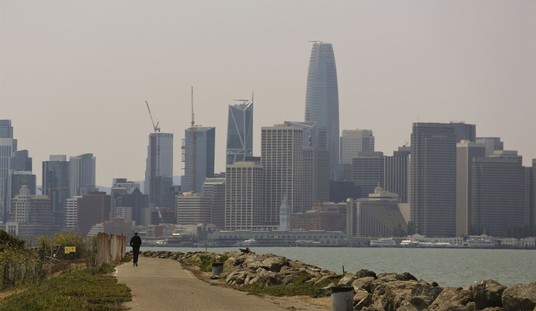When Tea Party protests began erupting all over the country last year, Democrats and their partisan advocates in the media wondered aloud why they would get criticism over tax increases. After all, they promised middle class tax cuts. Just yesterday, Congressional Democrats claimed to have cut taxes more than any other administration in history, which left Rep. Mike Pence in a fit of laughter on the House floor. CBS has a story up this morning attempting to boost Democrats’ arguments that Porkulus reduced taxes in 2009 and that voter anger is somehow misplaced.
They miss the point that although Democrats and the media have treated American voters like idiots, most of us can connect big spending today with massive tax increases later — and Gallup’s latest survey shows that 63% of the public managed to outsmart the elites:
Sixty-three percent of Americans believe their taxes will increase in the next 12 months, while 4% expect a change that will reduce their taxes. Majorities of all income groups share this view, though it is more common among Americans in upper-income households.
Americans in most demographic groups widely expect their taxes to increase over the next year, but there is pronounced variation among income groups, as noted, and by political party affiliation.
Specifically, 74% of Republicans expect their taxes to go up, as do 64% of independents. A proportionately lower 49% of Democrats share that view, but it is still the most common response within the group. Forty-one percent of Democrats expect their taxes to remain unchanged, and 6% think theirs will go down.
Gallup sampled the general adult population, not registered or likely voters. This is as sympathetic as it gets for Democrats. And even Democrats can’t sell the “tax cutter” spin to any more than 6% of their own party.
Not only do a plurality of Democrats disbelieve their own party on tax increases, the same holds true among all income demographics. A majority of 53% of people earning less than $30,000 per year expect their taxes to increase. Only 4% believe their taxes will decrease.
Compare these numbers to the Gallup survey from yesterday, which showed that 97% of all Americans believe they pay either enough or too much in taxes, and one can see why the Tea Parties have caught fire across America. Voters believe they’re overtaxed as it is, and see Democratic policies pushing big tax hikes as early as next year. The only real wonder is that the Tea Parties have only attracted a 24% identification in the electorate, but it grew by half in the previous month. They’re coming around to the Tea Party position, driven there by Democrats.
Update: For an idea of just how the media has twisted the coverage of the Tea Party, the Media Research Center has a new report on the issue. Called “Tea Party Travesty,” it rips the media for its biased approach:
- Given its demonstrated influence, network coverage of the Tea Party has been minuscule. Across all of their major programs, ABC, CBS and NBC aired a mere 61 stories or segments over a twelve month period, while another 141 items included brief references to the movement. Most of that coverage is recent; the networks virtually refused to recognize the Tea Party in 2009 (just 19 stories), with the level of coverage increasing only after Scott Brown’s election in Massachusetts.
- Most of the networks’ 2009 coverage was limited to individual Tea Party rallies: six reports on the April 15, 2009 “tax day” protests, along with five other brief mentions; just one report on the July 4 rallies; and six full reports on the September 12 rally on Capitol Hill, plus eight brief mentions.
- Such coverage is piddling compared to that lavished on protests serving liberal objectives. The Nation of Islam’s “Million Man March” in 1995, for example, was featured in 21 evening news stories on just the night of that march — more than the Tea Party received in all of 2009. The anti-gun “Million Mom March” in 2000 was preceded by 41 broadcast network reports (morning, evening, and Sunday shows) heralding its message, including a dozen positive pre-march interviews with organizers and participants, a favor the networks never granted the Tea Party.
- Network reporters were dismissive of the first Tea Party events in 2009. “There’s been some grassroots conservatives who have organized so-called Tea Parties around the country,” NBC’s Chuck Todd noted on the April 15, 2009 Today, but “the idea hasn’t really caught on.” On ABC’s World News, reporter Dan Harris warned viewers that “critics on the Left say this is not a real grassroots phenomenon at all, that it’s actually largely orchestrated by people fronting for corporate interests.”
That’s just the beginning. There is plenty more about the most recent coverage as well.








Join the conversation as a VIP Member